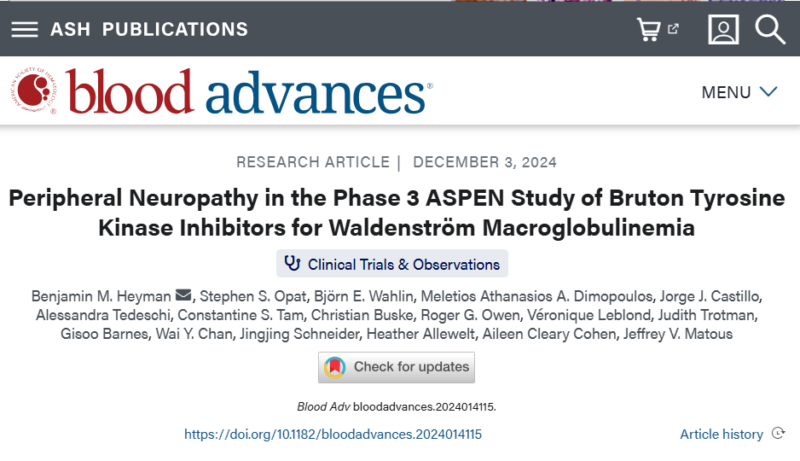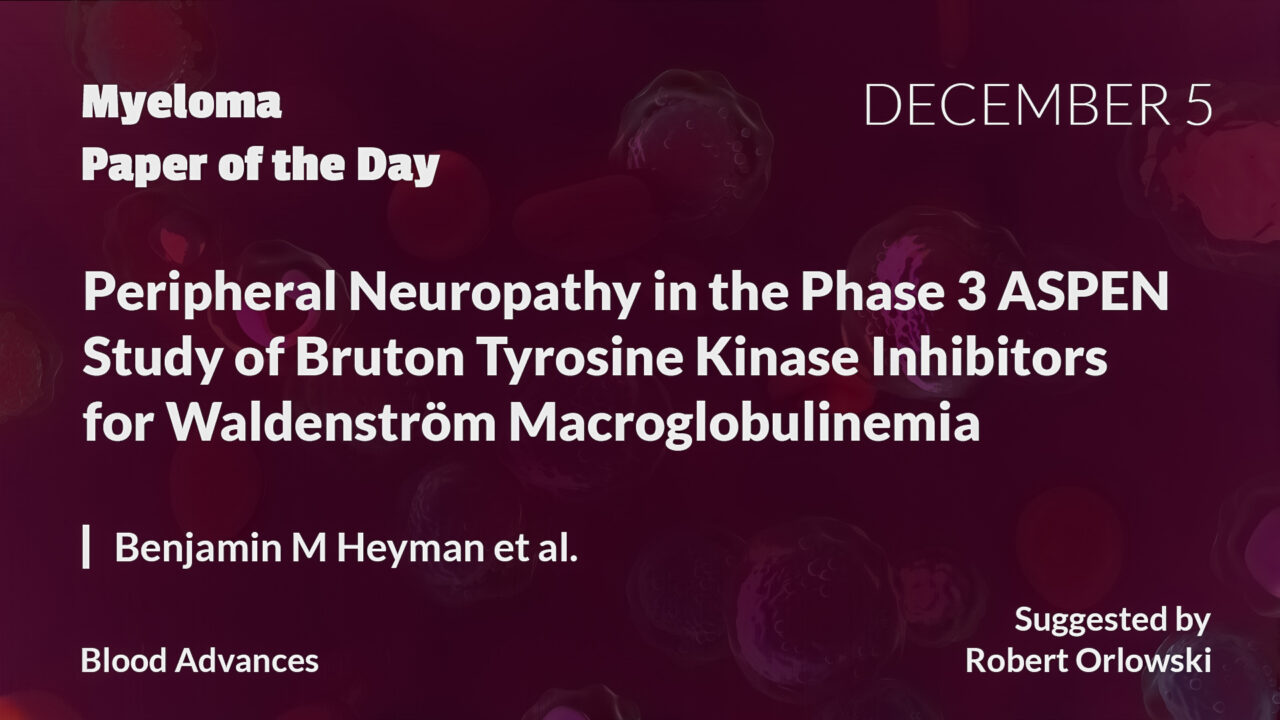Robert Orlowski shared a post on X:
“Myeloma Paper of the Day: Study of peripheral neuropathy in Phase 3 ASPEN study of BTK inhibitors for Waldenström macroglobulinemia finds significant relationship between symptom resolution and both major response and lower baseline anti-MAG levels.”
Authors: Benjamin M. Heyman, Stephen S. Opat, Björn E. Wahlin, Meletios Athanasios A. Dimopoulos, Jorge J. Castillo, Alessandra Tedeschi, Constantine S. Tam, Christian Buske, Roger G. Owen, Véronique Leblond, Judith Trotman, Gisoo Barnes, Wai Y. Chan, Jingjing Schneider, Heather Allewelt, Aileen Cleary Cohen, Jeffrey V. Matous.

More posts featuring Robert Orlowski.
Robert Orlowski, M.D., Ph.D., holds multiple positions at The University of Texas MD Anderson Cancer Center, including Chairman, Ad Interim Director of Myeloma, and Professor of Medicine in the Departments of Lymphoma/Myeloma and Experimental Therapeutics within the Division of Cancer Medicine. Additionally, he chairs the SWOG Barlogie/Salmon Myeloma Committee, which is part of the National Clinical Trials Network, dedicated to advancing new therapies and understanding the biology of myeloma.
Dr. Orlowski’s expertise lies in both clinical practice and scientific research, with a particular focus on translating laboratory discoveries into effective treatments for patients. He investigates drug resistance mechanisms in myeloma and seeks to identify predictive biomarkers for treatment response. Notably, his past contributions include leadership roles in developing proteasome inhibitors like bortezomib and carfilzomib, as well as monoclonal antibodies such as daratumumab and elotuzumab.


